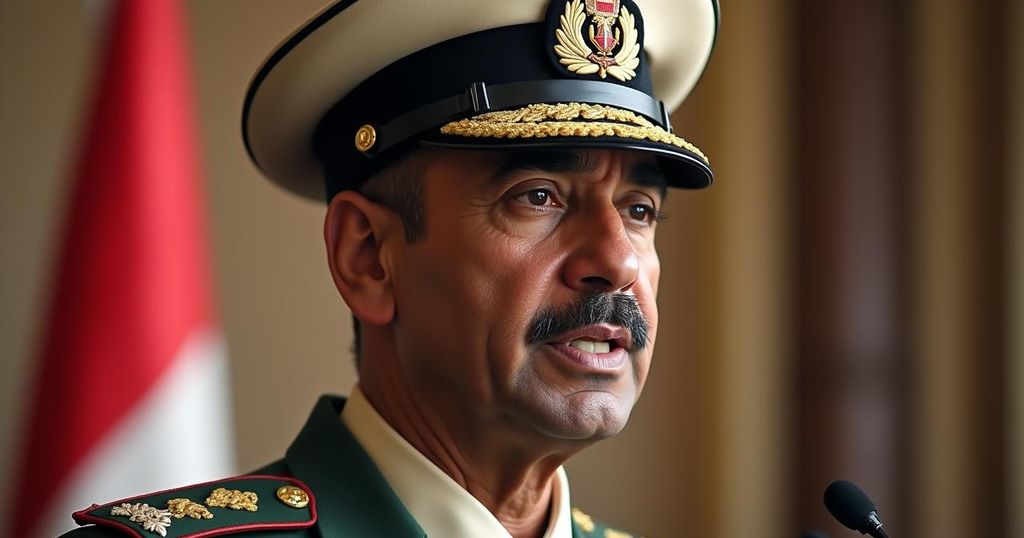On October 12, 2024, Lieutenant General Ibrahim Jabir stated that Egyptian air strikes could quickly resolve the ongoing conflict in Sudan. His comments followed accusations from RSF leader Hemetti regarding Egyptian bombings. Jabir dismissed Hemetti’s claims while underscoring the strength of Sudan’s relationship with Egypt and reporting progress in military operations against the RSF.
On October 12, 2024, a prominent Sudanese general asserted that the conflict in Sudan could be swiftly terminated through the deployment of Egyptian air power. Lieutenant General Ibrahim Jabir, a member of Sudan’s ruling Sovereign Council and Deputy Army Commander, made these remarks during an interview with the Al-Mohaqeq news outlet. He emphasized Egypt’s military capabilities, suggesting that its intervention could decisively defeat opposing forces. Jabir articulated that Egypt possesses a comprehensive understanding of the ongoing rebellion, which was initiated in April 2024, asserting that any additional support from Egypt could significantly alter the conflict’s dynamics. The Lieutenant General’s comments arose amidst accusations from Mohammed Hamdan Dagalo, commonly referred to as Hemetti, the leader of the Rapid Support Forces (RSF). Hemetti alleged that Egypt had engaged in air strikes against his troops. In response, Egyptian officials promptly denied these claims and requested that the international community scrutinize Hemetti’s assertions for evidence. Lieutenant General Jabir characterized Hemetti’s allegations as a tactic aimed at undermining the Sudanese military’s competency while attempting to exacerbate regional tensions with Egypt. He reiterated the robust relationship between Sudan and Egypt, stating, “Egypt is a great country, and if we were not neighbours, we would seek an alliance with it.” Furthermore, Jabir rejected Hemetti’s assertion regarding the RSF’s mobilization of one million fighters, referring to it as “naive propaganda,” and maintained that support for the rebellion was vastly exaggerated. According to Jabir, the Sudanese army has made notable progress in many battlefields and is reportedly close to consolidating forces in southern Bahri, as well as disrupting RSF supply lines across key regions including Khartoum, Darfur, and Sennar. He expressed confidence in the army’s continued advancements, predicting that developments both internally and externally would soon destabilize the foundation of the RSF’s efforts.
The conflict in Sudan has its roots in a combination of political instability, power struggles, and inter-ethnic tensions, exacerbated by ongoing violence between government forces and various militia groups, notably the RSF. The RSF, which evolved from the Janjaweed militia implicated in the Darfur conflict, has played a significant role in the current military confrontations. Egypt, as a neighboring country with vested interests in Sudan, has been closely monitoring the situation, and its involvement or potential military assistance could significantly impact the conflict’s trajectory and regional stability.
In conclusion, Lieutenant General Ibrahim Jabir’s assertions regarding the capabilities of the Egyptian military highlight the intricate relationship between Sudan and Egypt amid ongoing conflict. The allegations made by Hemetti against Egypt have stressed the complexities of alliances and interventions in the region. As the Sudanese military continues to report advancements against the RSF, the situation remains fluid, with potential implications for both domestic governance in Sudan and broader regional security dynamics.
Original Source: sudantribune.com






